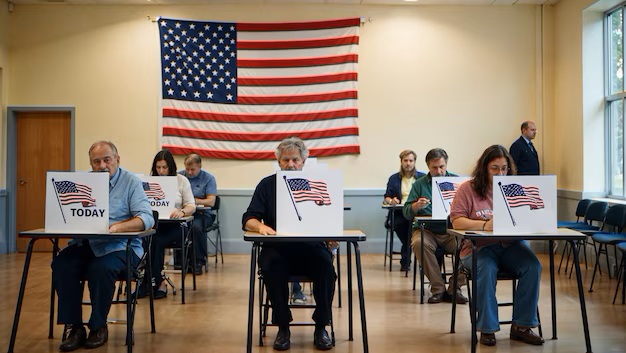The recent actions in the legislative chamber highlight a critical phase in the appointment process of key legal figures, amplifying the efficiency of governmental functions. This development underscores the continuous efforts to shape the judiciary in alignment with contemporary values and legal principles.
With a substantial number of appointments advancing, the implications for the judicial landscape are profound. These selections are not merely administrative; they reflect a broader commitment to ensure that the legal system remains robust and responsive to the needs of society.
As these candidates prepare for their roles, the importance of their backgrounds and qualifications cannot be overstated. Their expertise will play a pivotal role in shaping the interpretation and implementation of laws, thereby influencing a wide range of legal outcomes for years to come.
The Significance of Biden’s Judicial Appointments
The recent influx of appointments to the bench reflects a deliberate strategy aimed at reshaping the legal landscape of the nation. These selections are not just routine decisions; they represent a larger vision for how the judiciary should operate in addressing contemporary issues. The implications of these appointments are profound, as they influence the interpretation of laws and the protection of rights. With each judge placed in a position of influence, a shift in judicial philosophy can occur, impacting various aspects of society.
The Impact on the Legal System
The infusion of new judges is essential for the evolution of the legal system. Fresh perspectives can enhance the inclusivity and responsiveness of the courts, ensuring that a broader range of viewpoints is considered when legal disputes arise. This progressive approach aims to bring about a judiciary that reflects the diverse makeup of society, ultimately fostering greater justice.
| Aspect | Implication |
|---|---|
| Representation | Diverse backgrounds lead to a more equitable judicial process. |
| Legal Interpretation | New judges can shift the balance in key legal areas. |
| Future Precedents | Current decisions can set important legal standards for years to come. |
Long-Term Consequences
The long-term effects of these appointments extend beyond individual cases. As new judges make rulings, their decisions will create precedents that guide the judiciary for future generations. This generational impact is critical in shaping societal values and protecting the rights of citizens. Ultimately, the transformation of the judicial landscape seeks to ensure that the interpretation of laws remains dynamic and relevant.
Overview of the Senate Voting Process
The legislative process within the upper chamber of Congress involves several critical stages that determine the fate of various proposals and appointments. Understanding this mechanism is essential in grasping how decisions are made and what factors influence the outcomes of votes.
Preliminary Considerations
Before any proposal can be put to a vote, it must undergo a thorough evaluation. Committees play a pivotal role in reviewing the details, holding hearings, and gathering testimonies. This step ensures that only thoroughly vetted proposals reach the floor for discussion. The committee’s recommendation often carries significant weight, shaping the direction of the upcoming vote.
Vote Execution and Outcomes
When the time arrives for the decision, the chamber convenes, and members cast their votes. The process can vary depending on the type of measure being considered, with some requiring a simple majority while others demand a supermajority. The result of the vote not only affects the immediate issue at hand but also reflects the broader political landscape and party dynamics within the body.
Profiles of the 24 Nominees Selected
This section provides a detailed examination of the individuals chosen for significant legal appointments. Each person brings a unique background, skill set, and perspective, reflecting a diverse array of experiences that aim to enrich the judiciary. Understanding these profiles will illuminate their individual contributions to the legal landscape.
Background and Qualifications
- Extensive experience in various legal sectors, including public defense, corporate law, and civil rights advocacy.
- Academic achievements at prestigious law schools, often coupled with clerking for esteemed judges.
- Active participation in community service and pro bono legal work, demonstrating commitment to social justice.
Key Highlights of Selected Individuals
- Candidate A: A former public defender with a passion for criminal justice reform.
- Candidate B: An accomplished academic specializing in constitutional law, known for published works.
- Candidate C: A civil rights attorney recognized for impactful litigation in discrimination cases.
- Candidate D: An expert in environmental law with a track record of advocacy for sustainable practices.
- Candidate E: A judge with over a decade of experience on the bench, respected for fair and balanced rulings.
This collective demonstrates not only legal proficiency but also a profound understanding of societal issues, reinforcing the integrity of the judicial system. Their appointments are anticipated to influence legal interpretations and outcomes significantly.
Impact on the Federal Judiciary Landscape
The recent advancements in appointing new figures to the bench are poised to reshape the landscape of the federal court system significantly. This transformation is expected to influence judicial interpretations, legal precedents, and the overall direction of the judiciary in addressing various issues facing the nation.
Shifts in Legal Philosophy
The incoming judges bring diverse perspectives and ideologies that may alter the prevailing legal thought within the courts. With a blend of backgrounds, these appointees are likely to challenge established norms, thus creating a dynamic environment where innovative legal arguments can emerge.
Long-term Consequences
The significance of these appointments extends beyond immediate implications. As these individuals serve longer terms, their influence will manifest in landmark cases and decisions that could endure for generations. The evolving composition of the judiciary will play a critical role in shaping American law and fundamental rights, affecting communities across the country.
Key Issues Influencing the Confirmation Votes
The process of endorsing candidates for the judiciary is often shaped by a range of pertinent factors that can sway decision-makers. Understanding these issues is crucial for comprehending how these appointments can reflect broader political dynamics and societal values.
- Partisan Dynamics: The political affiliation of candidates frequently plays a significant role in their reception. Members of different parties may rally support or opposition based on ideological congruence.
- Judicial Philosophy: The judicial ideology of potential appointees can raise concerns or create enthusiasm among lawmakers. Questions around interpretations of the Constitution and precedent may dominate discussions.
- Past Record: A candidate’s previous rulings or public statements often come under scrutiny. Evaluating their track record can reveal biases or commitments that could influence their future decisions.
- Demographic Representation: Efforts to enhance diversity within the judiciary are often debated. Representation in terms of gender, ethnicity, and professional background can impact the approval process.
- Public Opinion: The views of constituents can exert pressure on lawmakers, especially if there is widespread support or dissent regarding a specific candidate’s qualifications.
- Legal Qualifications: Assessing a candidate’s professional qualifications and legal expertise is essential. Lawmakers consider educational background, experience, and credentials as vital components of fitness for the role.
Each of these issues contributes to the intricate interplay of politics and law, ultimately shaping the fate of individuals aspiring to serve in this critical capacity.
What This Means for Future Nominations
The recent developments in the legislative arena signal a shift in the landscape of appointments that could profoundly influence the judiciary. As political dynamics evolve, the implications of such advancements are significant for the approval processes that lie ahead. The passage of this particular group highlights the potential for streamlined confirmations, providing a glimpse into how upcoming appointments might be treated moving forward.
Impact on Upcoming Appointments
With the earlier successes, there may be an optimistic outlook for those awaiting consideration for similar roles. This environment could foster a climate where skilled individuals are more readily accepted into positions, paving the way for a diverse array of perspectives within the legal framework. The increasing bipartisan cooperation may lead to expedited reviews and a more transparent selection process.
Broader Political Implications
Beyond the implications for individual appointees, the current trajectory could reshape the broader political landscape. As various factions weigh the outcomes of these recent confirmations, strategies for future selections may be reevaluated. The evolving interplay between parties and their willingness to engage in dialogue will likely become a critical factor in determining the nature of future appointments, influencing not just the judiciary but the legislative framework as a whole.
Q&A: 24 biden judicial nominees advance senate vote
What is the significance of the Senate vote on Biden’s judicial nominees?
The Senate vote on Biden’s judicial nominees is significant because it reflects the Biden administration’s efforts to shape the federal judiciary with judges who align with progressive values. The confirmation of these nominees can influence various legal interpretations and rulings on critical issues such as civil rights, healthcare, and environmental protections. Furthermore, these appointments can have long-term effects on the judicial landscape of the United States, potentially impacting court decisions for decades to come.
How many judicial nominees were confirmed during this Senate vote?
During this Senate vote, 24 of President Biden’s judicial nominees were confirmed. This batch of nominees reflects the administration’s commitment to diversity and representation in the federal judiciary, including nominees from various backgrounds and judicial philosophies. The confirmation of this significant number of judges further demonstrates the Senate’s ability to fulfill its constitutional role in advising and consenting to presidential appointments, particularly in the face of potential partisan divisions.
What are the implications of these judicial appointments for the legal system in the U.S.?
The implications of these judicial appointments for the U.S. legal system are profound. With a more diverse and progressive judiciary, the federal courts may become more receptive to issues such as social justice, voting rights, and public health policy. This could lead to landmark rulings that can advance civil liberties and challenge restrictive laws at both state and federal levels. Moreover, as these judges serve lifetime appointments, their influence on legal precedents and interpretations will echo through future cases, shaping the direction of U.S. law for generations.
What challenges did the Biden administration face in getting these nominees confirmed?
The Biden administration faced several challenges in getting these nominees confirmed, primarily due to partisan divisions within the Senate. Republican senators often expressed opposition to nominees based on ideological differences, arguing that some judges were too liberal for their liking. Additionally, the need to navigate filibuster rules made it crucial for the Democrats to maintain unity among their members, especially when the margin for confirmation is thin. Furthermore, there were procedural delays and political maneuvering that often complicated the timely confirmation of judicial appointments, highlighting the increasingly contentious nature of the Senate’s confirmation process.
How has President Joe Biden’s administration influenced the federal bench through judicial nominations in 2024?
President Joe Biden’s administration has significantly impacted the federal bench during the Biden administration, especially through the advancement of district court nominees and circuit court nominees. The Senate Judiciary Committee advanced 24 judicial nominations to the full Senate, where the divided Senate, led by Senate Majority Whip Dick Durbin, will determine the outcome. Biden’s nominees have aimed to bring balance to the federal judiciary, with some facing resistance from Senate Republicans. The confirmation of highly qualified nominees for lifetime appointments on the federal bench remains a priority for Senate Democrats, especially as Biden needs continued support to match or exceed the number of judicial appointments made by former President Donald Trump.
How has the divided Senate affected the confirmation of President Biden’s judicial nominees?
The divided Senate has posed challenges for confirming President Biden’s judicial picks. Despite Senate Democrats holding the majority, judicial confirmations have often been contentious, especially with former President Donald Trump’s judicial appointments casting a long shadow. In 2024, Biden will need to secure Senate approval for his pending nominees, with many controversial nominees awaiting a floor vote. Senate Democrats, led by Majority Whip Dick Durbin, have pushed to advance highly qualified nominations to lifetime appointments on the federal bench. However, with a closely divided Senate, the confirmation of district court and circuit court nominees remains uncertain, requiring strategic negotiations to secure a majority in favor of Biden’s nominees.
How has President Joe Biden’s administration impacted the confirmation of judicial nominees, and what challenges remain in the Senate?
Since Democrats took back the White House and the Senate majority in January 2021, President Joe Biden has made strides in filling judicial vacancies, with a focus on court of appeals appointments and district judge nominations. The Senate has confirmed several of Biden’s nominees, including United States District Judge Laura Margarete Provinzino, who was recently voted on today. However, Biden nominees still face challenges in a closely divided Senate. While Biden seeks to match or exceed the judicial appointments of top Trump’s era, many court nominees – including circuit court of appeals nominees – are eligible for a vote on the Senate floor, but the confirmation process is often delayed. Press releases from the Democratic-led Senate emphasize the urgency of confirming judges to lifetime appointments, as Biden works to fill critical positions and maintain a balance on the federal bench.
How has the confirmation process for President Biden’s judicial nominees progressed, and what is the current state of pending nominees?
Washington – today, the Senate confirmed at least three of President Biden’s judicial nominees, including district nominees and one circuit nominee. The process of confirming these court judges is crucial, as Biden aims to fill numerous vacancies on the federal bench. With a narrow majority in the Senate, Biden has faced challenges in pushing judges to the full Senate for final votes. Biden’s goal is to match or surpass the judicial appointments made during previous administrations. The confirmation of these federal judges, particularly for the Boston-based 1st U.S. Circuit Court of Appeals, remains a key priority. As of now, several court nominees are eligible for a Senate vote, as Biden works to fill key positions and strengthen the judiciary.
What criteria does a magistrate judge consider when reviewing court nominees – are eligible for appointment?
A magistrate judge reviews various factors to determine if court nominees – are eligible for appointment. These factors include the nominee’s legal qualifications, experience, integrity, and any prior judicial performance. President Biden has emphasized the importance of diversity in the judiciary, which reflects in his approach to selecting nominees. In recent statements, he said U.S. courts need individuals who represent a broad spectrum of the community. To support this goal, Biden to fill three nominees from diverse backgrounds and experiences to match the demographic needs of the courts, ensuring a robust confirmation process. This alignment aims for the confirmation of at least three nominees to enhance the judiciary’s effectiveness.









